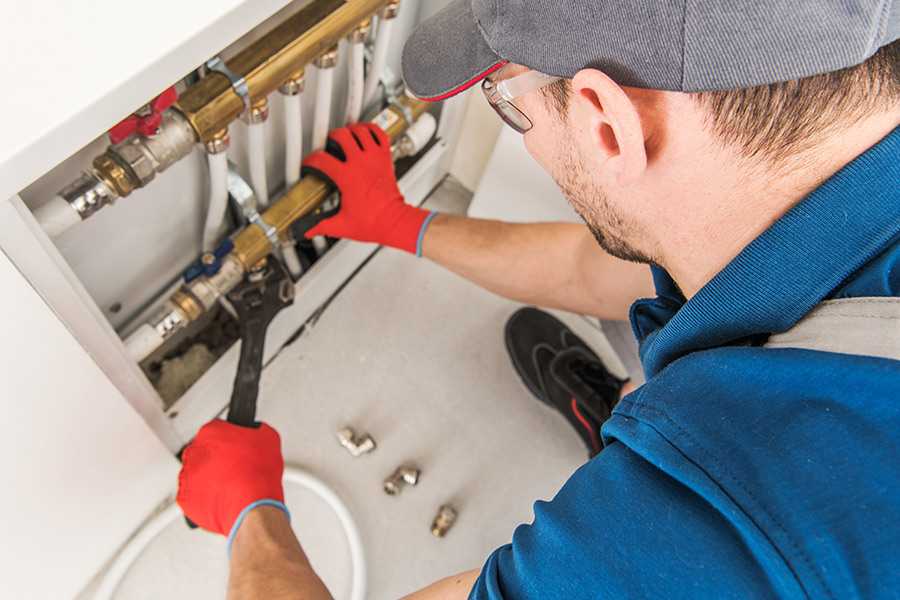Responding to the Primary Water Heater Urgencies
Responding to the Primary Water Heater Urgencies
Blog Article
The writer is making a few good pointers on Common Hot Water Heater Problems overall in this great article down below.

A water heater is one of the most important basic appliances that can be discovered in a house. With water heaters, you do not need to go through the anxiety of home heating water manually every single time there is a demand to take a bath, do the laundry, or the recipes. There is always an opportunity that your water heating system would certainly act up as with most mechanical gadgets.
It is important to note any little malfunction and also tackle it rapidly prior to points get out of hand. The majority of times, your water heater starts to malfunction when there is an accumulation of debris as a result of constant use. As a preventative measure, regular flushing of your hot water heater is suggested to prevent sediment build-up as well as protect against useful failing.
Usual hot water heater emergencies and exactly how to manage them
Too little warm water
It may be that the water heating system can not support the warm water demand for your apartment. You could upgrade your water heating system to one with a larger ability.
Varying water temperature level.
Your water heater might start generating water of various temperature levels typically ice cool or scalding warm. In this scenario, the first thing you do is to guarantee that the temperature is readied to the preferred level. If after doing this, the water temperature level keeps altering during showers or various other tasks, you could have a damaged thermostat. There may be a need to change either the heating or the thermostat unit of your water heater.
Leaking hot water heater tank.
A dripping tank could be an indication of deterioration. It can trigger damages to the flooring, wall surface and electrical tools around it. You can even be at danger of having your home swamped. In this situation, you ought to shut off your water heater, enable it to cool off, and very carefully seek the source of the problem. Sometimes, all you need to do is to tighten a few screws or pipe links in cases of minor leaks. If this doesn't function and the leakage persists, you could require to employ the solutions of a specialist for an appropriate substitute.
Discolored or stinky water
When this takes place, you need to know if the issue is from the water or the container source. If there is no amusing odor when you run cold water, after that you are specific that it is your water heating unit that is malfunctioning. The odiferous water can be created by rust or the build-up of microorganisms or debris in the water heating unit container.
Final thought
Some house owners disregard little caution and minor faults in their hot water heater device. This only causes more damages and a possible full malfunction of your device. You ought to manage your water heater faults as soon as they come up to avoid more expenses and also unnecessary emergency difficulties.
With water heaters, you do not require to go through the anxiety of heating water by hand every time there is a demand to take a bathroom, do the laundry, or the dishes. It may be that the water heating system can't support the hot water need for your apartment or condo. Your water heating system might start producing water of different temperature levels usually ice cool or scalding hot. If there is no funny odor when you run chilly water, then you are particular that it is your water heating unit that is damaged. The stinky water can be caused by corrosion or the build-up of microorganisms or debris in the water heating system container.
Common Water Heater Issues and What You Should Do
What Type of Water Heater Do You Have?
Before we begin it’s first important that you identify the type of water heater you have on your property. There are two main types of water heaters out there: conventional and high efficiency.
Both of these types of products typically use either gas or electricity to heat power. There are also solar water heaters that use a thermal collector on the roof or yard to heat the water.
While these models are not as common, they can cut heating costs in half. In this article, we will focus on conventional and high efficiency.
How Do My Electric and Gas Water Heater Work?
Though they look similar, electric and gas water heaters work very differently. It’s important to know their basic function because often problems can be specific to the heating source.
In the electric model, a thermostat on the side of the machine detects the temperature of the water in the tank. When the temperature needs to rise electricity flows to a heating element suspended in the water.
Gas models also use a thermostat device — typically with a mercury sensor at the tip and an additional sensor called a thermocouple. The thermocouple detects whether the pilot light is on and controls the flow of gas.
When the thermostat drops below the appropriate level gas is released which becomes ignited by the pilot light. The flame heats the bottom of the water tank which causes hot water to rise and cold water to drop.
This natural circulation continues until the water reaches the desired temperature. Then, the thermostat triggers the gas control valve to shut off the flow of gas.
What Are the Most Common Issues and How Do You Fix Them?
https://happyhiller.com/blog/common-water-heater-issues-and-what-you-should-do/

We hope you enjoyed reading our section on Common Hot Water Heater Problems. Many thanks for finding the time to read our blog post. Make sure you take a moment to distribute this page if you appreciated it. Thank-you for going through it.
Act now! Report this page